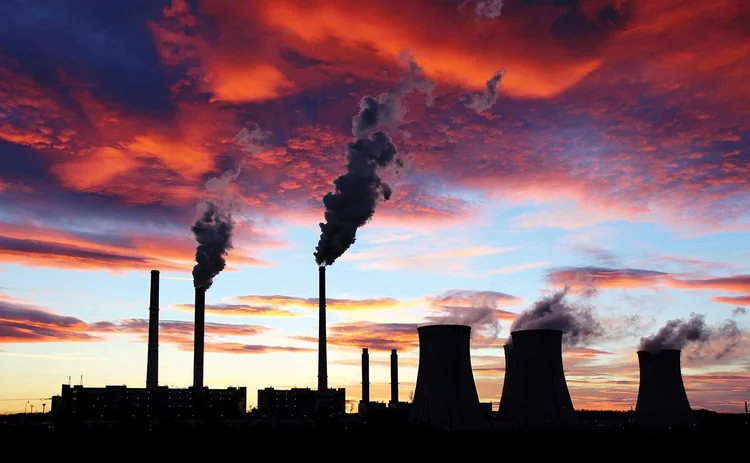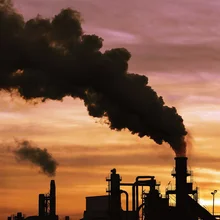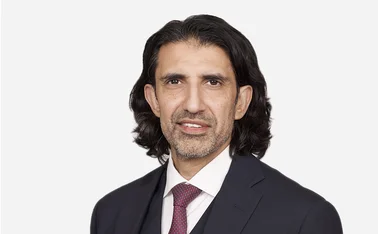
Analysis: Climate change - Getting to grips with global warming

Insurers have been forced into the front line of the fight to stop global warming and climate change and they are beginning to feel uncomfortable and exposed. While several major insurers have issued bold commitments to join the fight to halt global warming, they seem uncertain about where this might be leading them. David Worsfold reports
As insurers struggle with the implications of what they have done so far towards addressing climate change, regulators are starting to ask them questions about how exposed they are to climate-related risks.
The insurance industry has found itself in a very awkward position. Facing up to the impact of climate change – especially carbon emissions from fossil fuels – is now top of the agenda for many supra-national bodies, such as the United Nations, the European Union and the World Bank. Climate change activists are no longer on the fringes but are listened to by these organisations, whether that be campaign groups such as Unfriend Coal or the 16-year-old Swedish school student Greta Thunberg.
They all believe the insurance industry has a key role to play by wielding its huge financial power in meeting what they see as the pre-eminent challenge of our times. They want it to redirect its investments away from dirty energy and into renewables, while also instructing its underwriters to shun fossil fuel energy producers and major users.
Green credentials
The response on the investment side has been slow but is now gathering pace as insurers and their fund managers revamp their environmental, social and governance strategies to embrace broader green criteria. This is not without its controversies and critics, but they are nothing compared to the challenges mounting on the underwriting side.
Top of the hit list for the campaigners is coal. Coal has been highlighted as the most carbon heavy of all fossil fuels, generating not only nearly half of the world’s CO2, but also creating the most atmospheric pollution. Tar sands extraction is also a focus of growing concern.
The pressure group Unfriend Coal has the ear of the UN and the EU and is uncompromising in its belief in the central role of the insurance industry in driving towards its target of zero coal consumption by 2050, a modest ambition compared to some other climate change campaigners’ demands and much shorter timescales.
Regulators vigilant on climate change impacts

The Bank of England has led the way among global regulators in warning of the risks climate change poses to the insurance industry. Through the Prudential Regulation Authority it has released a series of supervisory statements urging insurers to identify and manage financial risks relating to climate change, the most recent in April this year (Enhancing banks’ and insurers’ approaches to managing the financial risks for climate change. Supervisory statement SS3/19. Bank of England/Prudential Regulation Authority).
The PRA expects insurers to have plans of how best to approach climate change within their current policies, especially meeting massive claims from the growing number of severe natural catastrophes. It wants the industry to look at how it can address the risks posed by this issue. This
is now on boardroom agendas and contributing to the caution in publicly adding any detail beyond the statements they have already made.
It has also warned that insurance companies could face a significant downgrade on their investments in fossil fuel companies if governmental pressure accelerates the move away from fossil fuels.
“Insurance companies are in a unique position to accelerate the transition to a low-carbon economy. As risk managers they play a silent but essential role in deciding which types of project can be built and operated in a modern society. Without their insurance, almost no new coal mines and power plants can be built, and most existing projects will have to be phased out.
“With assets of approximately $31trn (£24trn), insurers are also the second largest group of institutional investors after pension funds. Reports commissioned by Ceres and the Unfriend Coal campaign have found that the largest US and European insurers have invested close to $600bn in fossil fuels,” says Unfriend Coal.
The willingness of insurers to move some of their vast pool of assets away from coal is exceeding those prepared to stop underwriting coal dependent businesses. This is fast becoming a major flash point in the industry’s relationships with climate campaigners.
Unfriend Coal reported earlier this year that 19 major insurers had withdrawn or indicted that they would be withdrawing from investing in coal. At that stage only 14 insurers had been identified as saying they will restrict underwriting: Allianz, Axa, Generali, Hannover Re, Mapfre, Munich Re, Nationale Nederlanden, QBE, SCOR, Swiss Re, Talanx, Uniqa, VIG and Zurich. Chubb recently became the fifteenth and first US insurer to add its name to that list when it announced it will pull back from underwriting the construction and operation of new coal-fired plants or risks for companies that generate more than 30% of their revenues from coal mining or energy production from coal by 2022.

Evan Greenberg, chairman and CEO of Chubb, said at the time of the announcement: “Chubb recognises the reality of climate change and the substantial impact of human activity on our planet. Making the transition to a low-carbon economy involves planning and action by policymakers, investors, businesses and citizens alike. The policy we are implementing today reflects Chubb’s commitment to do our part as a steward of the Earth.”
Campaigners are sceptical about some of these commitments and Unfriend Coal’s most recent analysis shows that, while many of these insurers have ended insurance for new coal projects, many of them continue to support existing operations. The campaign group says so far only four insurers – Allianz, Axa, QBE and Swiss Re – have adopted policies that are strict enough to significantly limit their coverage for existing coal projects.
Questions to answer
Not everyone in the insurance industry is convinced that responding to this pressure is the right thing to do, nor do they believe it will be effective. There is also a raft of tricky questions to answer. What will happen to the rates businesses pay as major insurers walk away from them? How will the insurance industry respond to pressure to withdraw from underwriting other fossil fuel risks? How comfortable are insurers at being joined to the environmentalist agenda in this way? Where will coal-based businesses find insurance? How will insurers run-off their existing liabilities? What are the risks surrounding de-commissioning redundant plant and who will insure these? What happens to compulsory classes, such as employers liability/workers comp? Coal is still growing in major emerging markets such as India and China – how will the insurance sector respond to that growth and the demand for insurance cover?
The lofty statements of Greenberg and others do not address these questions, nor do they explain how the growing pressure from regulators to take full account of the potential liabilities arising from climate change, especially the increasing number and severity of weather related catastrophes will impact them (see box right).
The enthusiasm for issuing sweeping statements committing themselves to joining the fight against climate change is not matched by their willingness to answer difficult questions. Insurer after insurer declined to put anyone up to be interviewed for this article. “There is a company-wide review regarding messaging on climate change risk, so I expect that until that process is complete, external comment on this will be limited,” was a typical response.
The same timid stance was prevalent among the major brokers, despite a previous willingness of some to air
their concerns.
One of those was Hamish Roberts, who as CEO of the power division at JLT Specialty was outspoken in his concerns, going on the record on more than one occasion. Now JLT has been absorbed into Marsh it would appear he can no longer speak freely.
Roberts is not alone and his previous comments reflect what a handful of others will only say off the record.
“It is an irrefutable fact that the world produces too much greenhouse gas, which is leading to increased windstorm, economic migration and a rise in water temperature and levels,” said Roberts in a JLT publication.
He added: “We at JLT care about the environment and, while everyone shares the overall ambition of the lobbyists’ campaigns in terms of reducing carbon emissions, we believe that targeting insurance is a very blunt weapon and the withdrawal of insurance may also have a detrimental impact on the advance of cleaner technologies.”

Unintended consequences
The withdrawal of traditional insurance could also have some unintended consequences. “I am in no doubt that if any clients cannot get insurance, they will insure themselves instead – which is exactly what happened in the oil and gas sector in the 1970s,” said Roberts.
It would also remove the industry’s ability to influence behaviour. “Insurers can presently offer more competitive rates to incentivise the use of clean coal technology. By withdrawing cover and forcing them to self-insure, there is an additional risk that pollution may actually increase as companies reduce spend on maintenance and pollution control to cover the additional costs,” he added.
He also highlighted another commonly-held worry among underwriters who often have to provide cover for activities and sectors that to some are controversial which is: “What next? Marine, oil and gas, aviation, fashion? All industries in some way involve processes and products that could be ethically questionable to someone. Is it right that the insurance industry should take a moral standpoint and act as both judge and jury?”
Some insurers are also concerned about isolating themselves from the rapidly growing economies of Asia and the Far East. This is politically sensitive territory, adding to the fear of saying anything that might be misinterpreted. Politicians in those countries are already lining up to be critical of western businesses and governments they believe built their prosperity on using carbon fuels but are now trying to prevent them from benefiting from the same opportunities to grow their economies.
Research by Climate Analytics found that no more new coal projects can be built if the goals of the Paris Agreement are to be met, yet there are currently 1,600 coal extraction, production and generation planned globally, many in influential emerging markets, including China, India and Vietnam. Poland also remains a major target for campaigners, especially after its government successfully led a group of countries to block the EU proposal to set a firm target date for reducing emissions.
China’s controversial Belt and Road infrastructure project includes commitments to build coal-fired power stations in Bangladesh, Indonesia, Pakistan and Vietnam.
Insuring new plants around the world is right in the front line of the battle between the insurance industry and climate campaigners and they are being particularly rigorous in scrutinising the actions of those fourteen insurers that said they were going to shun coal. The German insurer Talanx, which announced an ambitious policy of withdrawing from underwriting coal in April, quickly found itself being called out by Urgewald – a German environmental and human rights group – for its activities in Poland and Vietnam.
Regine Richter, the group’s energy campaigner said: “Talanx might have adopted a policy that allows it to join the coal exit train led by other insurers without having its business interest overly impacted. Looking at the severe impacts caused by coal on the climate and health of communities, this is unbearable. Talanx should ensure to bar such dirty projects from further insurance services and stop locking-in communities to a carbon-intensive future. The fact that renewables have become more competitive than coal in most countries also raises doubts about Talanx’s coal insurance deals from a business point of view.”
Richter added: “For the company’s Polish coal activities, the new policy must lead to a quick clean up, since the climate crisis leaves no room for loopholes here. In Vietnam, Talanx must use its minority ownership of PVI to ban coal or withdraw from the company.”
Vietnam is a hotspot for new coal plants with 16.2 gigawatts of installed coal capacity and plans for an additional 42.9GW. This makes Vietnam the country with the world’s third largest coal plant pipeline.
Broker scrutiny
Brokers are also facing tougher scrutiny and were warned earlier this year what to expect: “Brokers’ climate pledges are worthless if they continue to undermine global climate targets by supporting coal expansion,” said Peter Bosshard, co-ordinator of the Unfriend Coal campaign. “All actors playing a critical role in the global economy have a responsibility to bring their businesses in line with the Paris Agreement. The Unfriend Coal campaign will pay closer attention to the role of brokers in 2019.”
This warning does not appear to have been heeded as Aon and Marsh have both been slammed for supporting the expansion of coal-fired energy generation in Vietnam.
Unfriend Coal and Market Forces have urged them to withdraw from their advisory roles in a proposed $2.6bn Vietnamese coal-fired power station – linked to alleged “excessive” environmental, health and human rights impacts.
The project, Van Phong 1, is set to be built in Van Phong Bay, in Khanh Hoa Province, South Central Vietnam, in 2023, with a generating capacity of 1,320 megawatts.
“Insurance brokers need to take responsibility for the consequences of their projects. Advising on the Van Phong 1 plant will cost lives and put global environmental targets in significant jeopardy. We implore Aon and Marsh to remove themselves from this, and all other new coal projects, before it’s too late”, said Lucie Pinson, European director of Unfriend Coal.
Both Marsh and Aon declined to comment.
This refusal to engage with environmental groups is a major source of friction between them and the industry.
Earlier this summer, campaigners led by Greenpeace tried to speak to the CEOs of the 80 largest insurance companies when they met in Buenos Aires for the annual get-together of the Geneva Association, an insurance industry think-tank. For the second year running, the CEOs refused to engage with campaign groups about their response to the climate crisis.
Paul Horsman, global campaign leader at Greenpeace Andino, said: “Given their access to the latest climate science and their role as global risk managers, insurance companies are in a unique position to accelerate the transition to a fossil-free future. We demand that insurers ensure our future, not coal and tar sands projects.”
This is a clear signal that campaigners will not wait for governments to act – perhaps by imposing new regulatory requirements on insurers when it comes to climate change – but will continue to pressure the industry to act.
Like it or not, insurers and brokers are on the front line.
Only users who have a paid subscription or are part of a corporate subscription are able to print or copy content.
To access these options, along with all other subscription benefits, please contact info@postonline.co.uk or view our subscription options here: http://subscriptions.postonline.co.uk/subscribe
You are currently unable to print this content. Please contact info@postonline.co.uk to find out more.
You are currently unable to copy this content. Please contact info@postonline.co.uk to find out more.
Copyright Infopro Digital Limited. All rights reserved.
As outlined in our terms and conditions, https://www.infopro-digital.com/terms-and-conditions/subscriptions/ (point 2.4), printing is limited to a single copy.
If you would like to purchase additional rights please email info@postonline.co.uk
Copyright Infopro Digital Limited. All rights reserved.
You may share this content using our article tools. As outlined in our terms and conditions, https://www.infopro-digital.com/terms-and-conditions/subscriptions/ (clause 2.4), an Authorised User may only make one copy of the materials for their own personal use. You must also comply with the restrictions in clause 2.5.
If you would like to purchase additional rights please email info@postonline.co.uk









